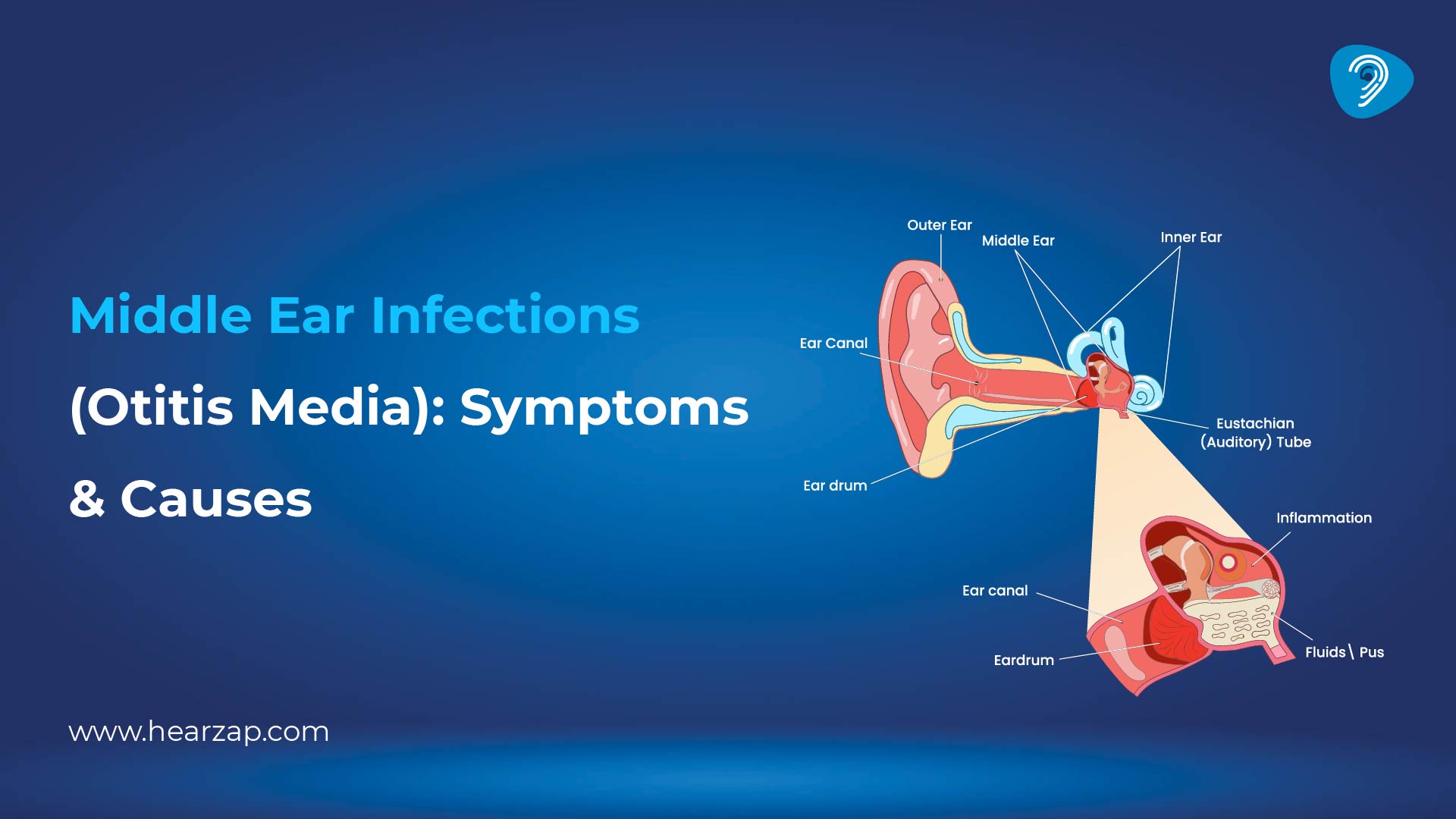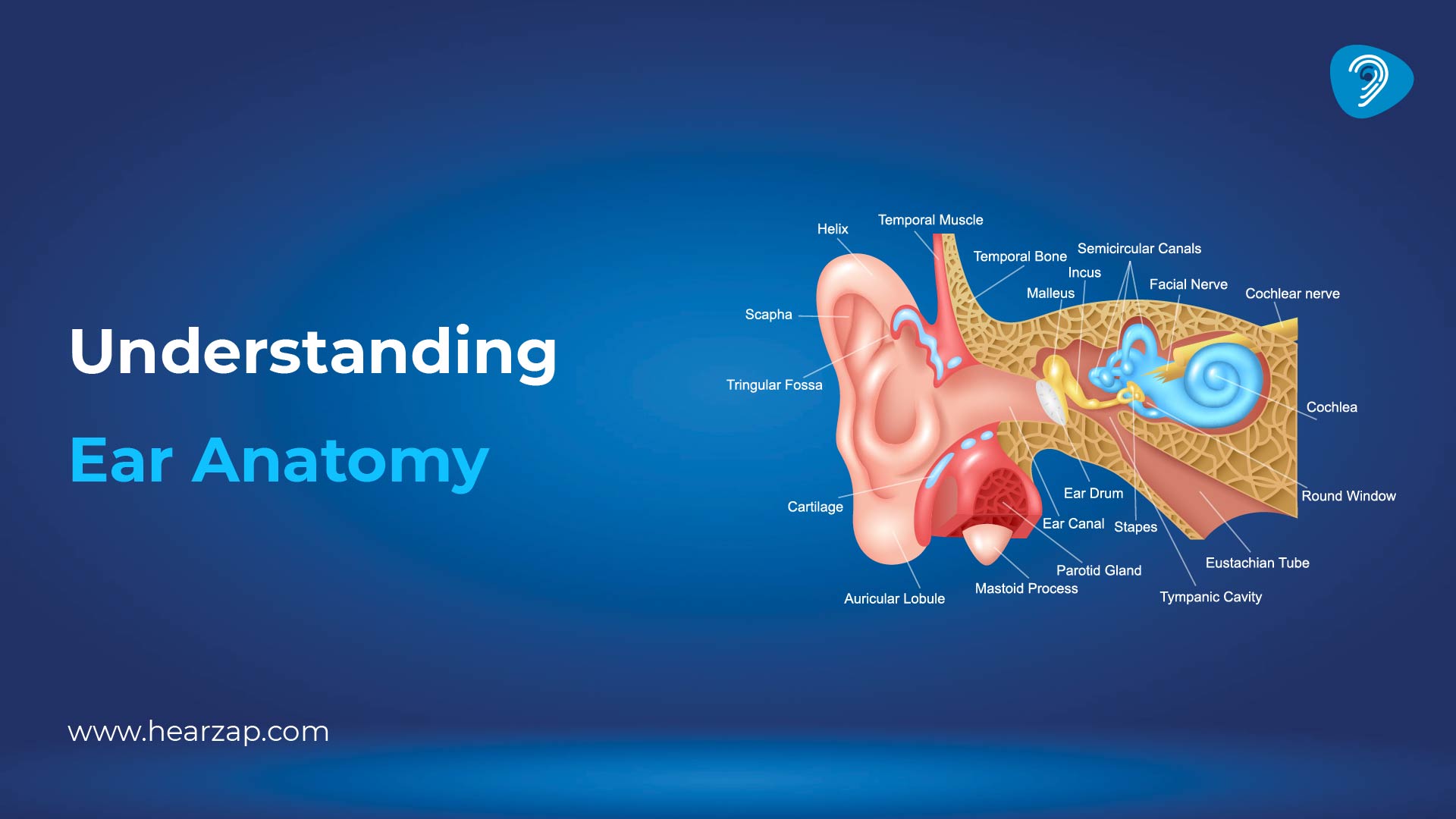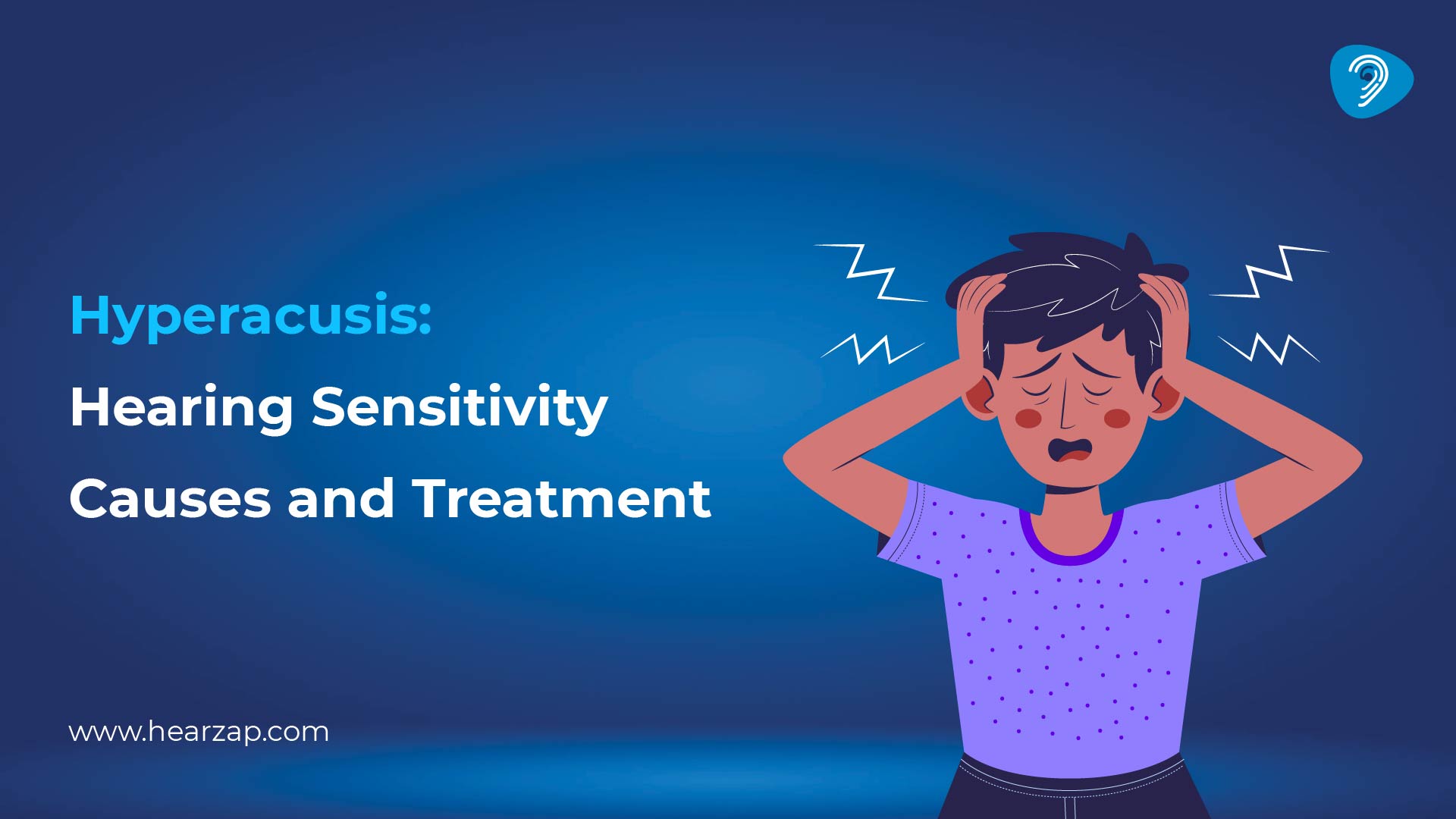HEARING CARE
Middle Ear Infections (Otitis Media): Symptoms & Causes
By Team Hearzap | June 3, 2025

In the case of middle ear infections, Otitis Media ranks highest among the illnesses that children face, but adults can also experience them. The infection occurs behind the eardrum and causes pain with temporary hearing loss, and can lead to complications if left untreated. In this blog, we'll explain the symptoms associated with ear infections, go over what causes ear infections, with some insight pertinent for parents and adults alike on understanding this condition.
What Is a Middle Ear Infection?
When bacteria or viruses gain access to the air-filled space behind the eardrum, a middle ear infection occurs. This space contains the little bones that conduct sound. The infection usually sets in after a cold, sore throat, or some other upper respiratory disorder. An infection develops when the eustachian tubes getting from the middle ear to the throat become swollen or blocked, resulting in fluid in ear.
There are three main types of Otitis Media:
- Acute Otitis Media (AOM): A sudden and painful infection with swelling and trapped fluid.
- Otitis Media with Effusion (OME): Fluid remains after the infection, with or without symptoms.
- Chronic Otitis Media: Long term or repeated infections that can lead to permanent ear damage.
Otitis Media Symptoms: What Does an Ear Infection Feel Like?
Knowing the otitis media symptoms helps with early detection and treatment. Symptoms may vary depending on the person’s age and the type of infection.
Common Middle Ear Infection Symptoms:
- Ear pain or pressure
- Feeling of fullness in the ear
- Trouble hearing
- Drainage of fluid or pus
- Mild fever
- Dizziness or balance issues
- Irritability, especially in children
Wondering what does an ear infection feel like? For many, it's described as a dull, throbbing pain or a sharp stabbing sensation inside the ear. Adults might also feel like their hearing is muffled, or they’re underwater due to the fluid in the ear.
Symptoms of Ear Infection in Toddler
Children, especially under age two, are more prone to middle ear infections due to their shorter and narrower eustachian tubes. Parents need to recognize the signs of ear infection in toddlers, even when the child can’t express what they feel.
Common Symptoms of Ear Infection in Toddlers:
- Tugging or pulling at the ear
- Unexplained crying or fussiness
- Trouble sleeping
- Loss of appetite
- Fluid or pus leaking from the ear
- Trouble hearing or responding to sounds
- Fever
These symptoms of ear infection in toddlers can be easy to miss, especially if the infection isn’t causing severe pain. Regular monitoring and doctor check-ups are essential.
What Causes Ear Infections?
Understanding what causes ear infections helps in both prevention and treatment. Most infections are caused by bacteria or viruses entering the middle ear due to blocked or swollen eustachian tubes.
Major Causes Include:
- Respiratory Infections: Colds and sinus infections can spread to the ear.
- Eustachian Tube Blockage: Narrow tubes in children are easily blocked, leading to fluid buildup.
- Allergies: Can cause swelling and increased mucus, which blocks drainage.
- Poor Air Quality: Exposure to cigarette smoke or pollutants increases infection risk.
- Bottle Feeding in Lying Position: Can cause milk to enter the eustachian tubes in babies.
What Causes Ear Infections in Adults?
Adults may not get ear infections as frequently as children, but when they do, the causes are often:
- Smoking or secondhand smoke exposure
- Allergies
- Sinus infections
- Cold or flu
- Changes in air pressure (such as flying)
- Immune system issues
Knowing what causes ear infections in adults is key to taking steps to reduce the risk.
Diagnosing a Middle Ear Infection
Doctors typically use an otoscope to look at the eardrum. If the ear is red, bulging, or leaking fluid, it’s likely infected. In recurring cases or suspected hearing loss, an audiometry test may be done to measure how well sound is being heard and processed.
Other methods may include:
- Tympanometry to check for fluid behind the eardrum
- Hearing tests in children who experience frequent infections
Complications of Untreated Ear Infections
While most middle ear infections clear up with proper treatment, ignoring them can lead to:
- Temporary or permanent hearing loss
- Speech delays in children
- Spread of infection to nearby tissues
- Ruptured eardrum
- Chronic drainage (chronic suppurative otitis media)
Timely care is crucial to avoid these complications.
Treatments for Ear Infections
Treatment depends on the severity and frequency of the infection.
Common Approaches:
- Watchful Waiting: In mild cases, the infection may resolve without antibiotics.
- Pain Relievers: Such as acetaminophen or ibuprofen.
- Antibiotics: Prescribed when the infection is bacterial or if symptoms worsen.
- Ear Tubes: Tiny tubes may be inserted in children with frequent infections to allow fluid to drain and reduce pressure.
- Adenoid Removal: Recommended if enlarged adenoids are blocking ear drainage.
Always follow a doctor’s advice when it comes to medication or surgical options.
Prevention Tips for Ear Infections
Reducing the chances of developing an ear infection starts with simple steps:
- Stay up to date with flu and pneumococcal vaccines
- Breastfeed infants for at least 6 months to boost immunity
- Avoid smoke exposure at home
- Don’t bottle feed babies while lying flat
- Treat colds and allergies promptly
- Practice regular hand hygiene to avoid respiratory infections
Conclusion
A middle ear infection is more than just ear pain, it can impact hearing, behavior, sleep, and overall health, especially in young children. By recognizing ear infection symptoms early and understanding what causes ear infections in both children and adults, you can take the right steps toward effective treatment.If you or your child experience ongoing symptoms like fluid in the ear, hearing trouble, or frequent infections, don’t wait. Consult an ENT specialist and consider an audiometry test to evaluate hearing health. Early diagnosis leads to better outcomes and clearer hearing for life.
Also Read: Ear Infections: Causes, Symptoms & Treatment
Related Blogs

Understanding Ear Anatomy: Parts and Their Functions

Hyperacusis: Causes of Hearing Sensitivity and Treatment Options

Hearing in 2025: Top Expert Tips to Keep Your Ears Sharp

5 Ways Healthy Hearing Can Improve Your Mental Health
Contact us
We are here for all your hearing needs, from hearing tests to hearing aids. Fill out the form below, and we will give you a call soon.
Please enter a valid mobile number with 10 digits.
Recent Blogs
By None | Jan. 12, 2026
By None | Jan. 6, 2026
By None | Jan. 5, 2026
By None | Jan. 2, 2026
By None | Dec. 31, 2025









